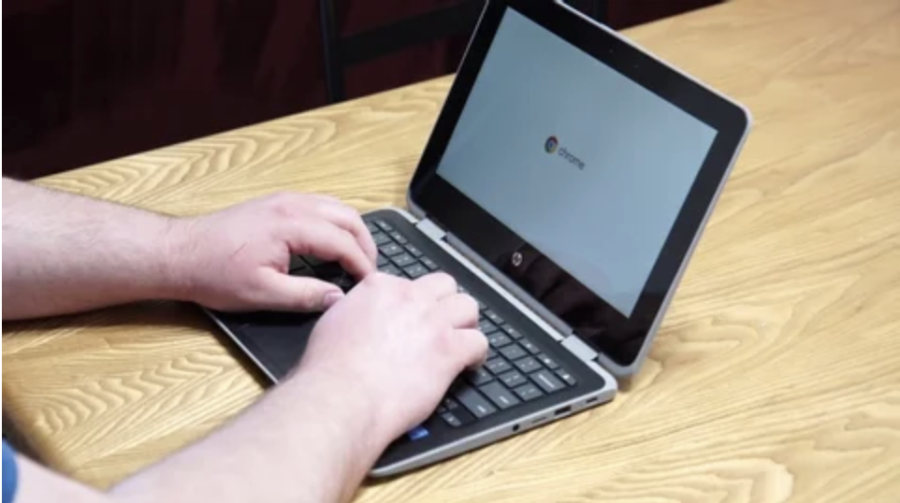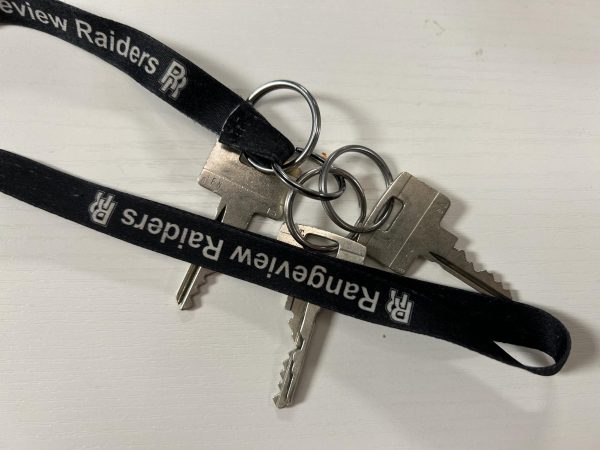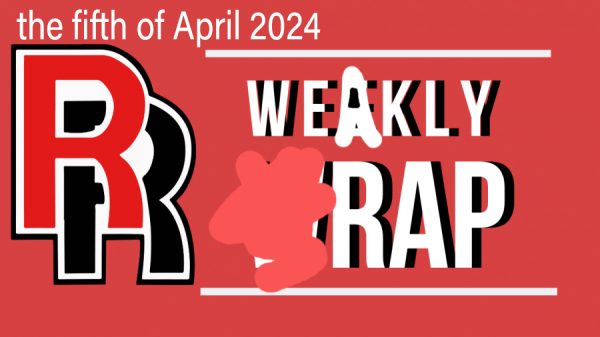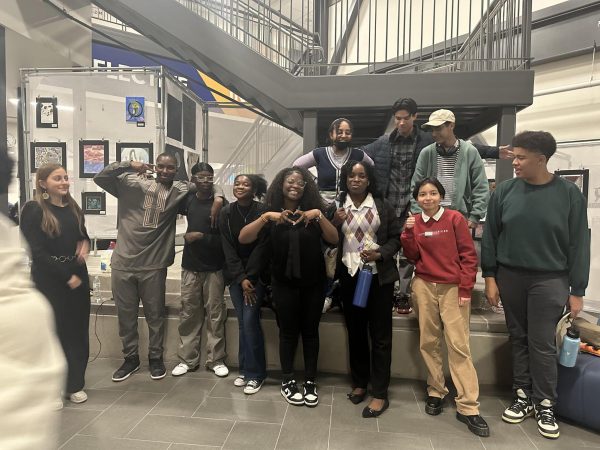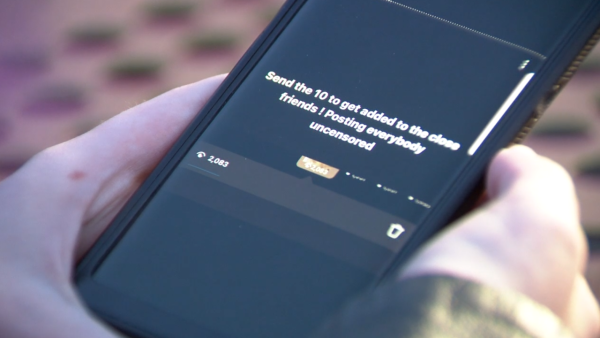Should High Schools Monitor Chromebooks?
September 16, 2022
An interesting development to the school year has emerged following seemingly recent and increased monitoring of school-issued chromebooks here at Rangeview and other highschools. While districts all across the country have been both scrutinized and praised for further utilizing these security measures, the response at Rangeview has been rather mundane. This controlled survey, made to pinpoint the general attitude of the student body aims to fix that.
We received 39 responses to the survey, the first question simply asked surveyors whether they agreed with the newly increased Chromebook monitoring policies. 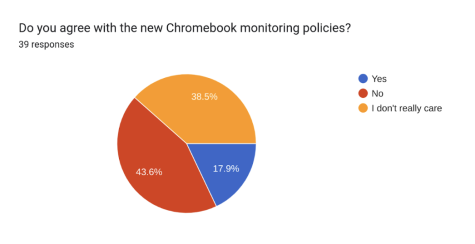
Out of the 39 responses, 17 responders said they didn’t agree, 7 said they did and the remaining 15 responders said they really didn’t care to agree nor disagree. This indicates a more accepting attitude toward the monitoring than I expected. Disregarding whether they agree or not, the survey asked whether they found the policies necessary. 10 of 39 responses said they found them necessary and 27 said they found them unnecessary. One of the main concerns parents and students across the country seem to have with this monitoring is just how much schools are able to see, “Using these tools, schools can filter web content; monitor students’ search engine queries and browsing history; view students’ emails, messages and social media content; and/or view their screens in real-time (Bridget McCrea, EdSurge)”.
While I’m sure in the sight of benefiting mental health or preventing violence, people understand why we need this kind of monitoring. However, some schools are deciding to monitor their devices during school hours and after school hours. 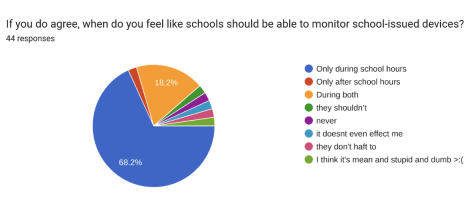
Surveyors were then asked when they feel schools should be able to monitor their school-issued devices. 30 responses said only during school hours, 8 responses said during both and 1 response said only after school hours. The rest of the responses pictured were surveyors’ elaborated opinion on it. This question resulted in a heavily tilted result toward only during school hours- reflecting the general arguments we’ve been hearing everywhere surrounding privacy. It’s wrong to unknowingly monitor someone at a time they don’t know about. Rangeview 11th grader, Carolynn Ames says that, “students should be able to feel like faith has been put into them to do the right thing with their devices, blocking sites and tools that can help them get jobs, etc only makes students think the district doesn’t care about them”.
Honestly, I think a lot of the stigma about software like LineWize simply surrounds the complexity of them, many can’t imagine why an entire school population would need constant surveillance like this. When you factor in a lot of the more recent violence in schools both locally and nationally, you see why schools like ours would move to take preventative measures. Leaving the question; is this the right way to do that? Furthermore, There’ve been cases where students are conscious about how they use their devices and still get in trouble. Of students plugging their personal devices into the laptop to charge- disclosing personal information like what apps they’re using and even down to their screen interactions in some cases.
Another common concern circulating between students, parents and even staff in schools is whether they may be excessively surveilling students who rely on school-issued devices more than others. Also what this means for those students who are already being disproportionately affected- often negatively in their own environments outside and inside of the school setting. 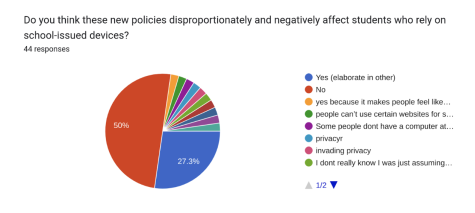
“Students who rely on school issued devices are disproportionately targeted by the spyware that is installed in devices. This targets students in low income households, which is cruel and unfair. Also, the lack of a school-wide explanation on exactly what this spyware can and can’t do feels maliciously intentional. we demand fair explanation of what this software can do at the very least”.
The survey asked respondents whether they thought the new monitoring policies disproportionately and negatively affected students who rely on school-issued devices. Half of the 39 responses said they didn’t think so and the other half thought yes, the remaining 23% selected ‘other’ as requested if they wanted to elaborate. This response yielded an interesting 50% split amongst our population, indicating a more general opinion split for the whole student body.
Essentially, schools have used “Goguardian” and other applications to monitor their devices for years now. I think we’ve been hearing more concerns everywhere about media websites and online platforms- concern about that generally has increased. The general opinion here at Rangeview however after this study seems to signify that students understand the preventative and mental health goals using this software will help with. However, revisions inevitably may need to be made in the future in regards to how the software is used and viewed.
